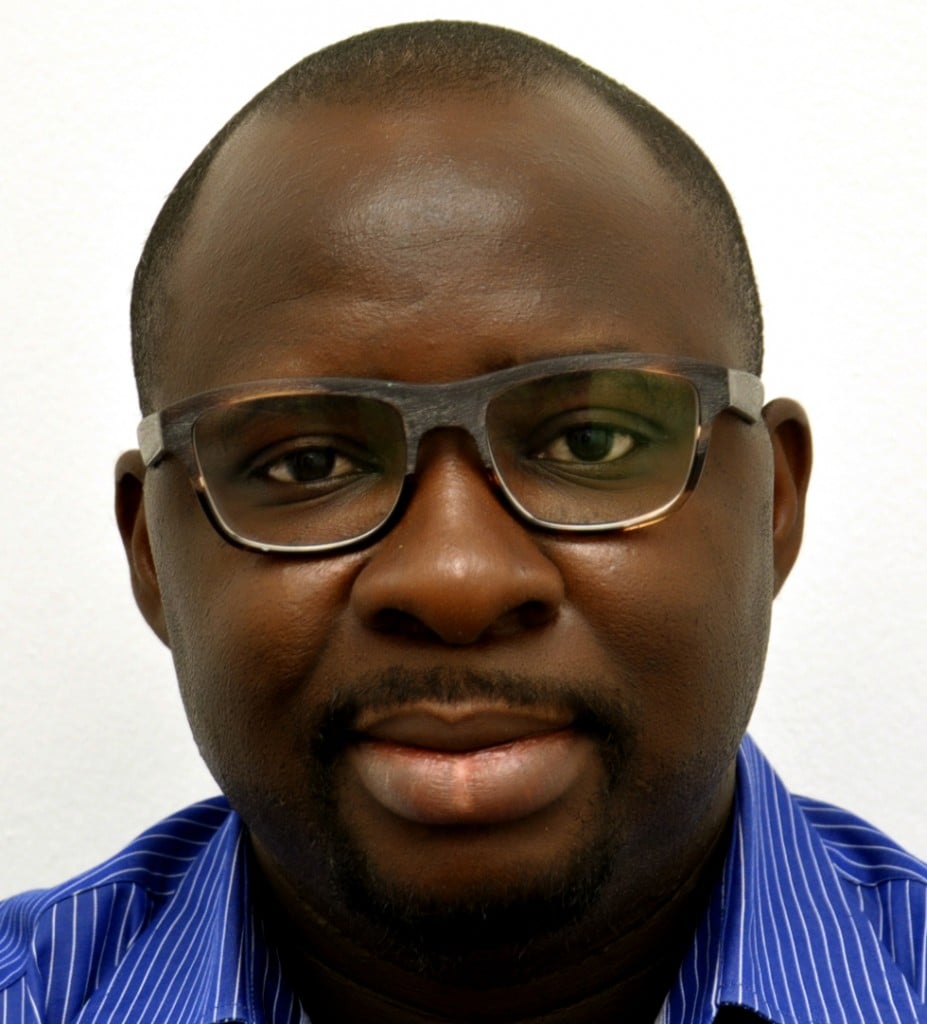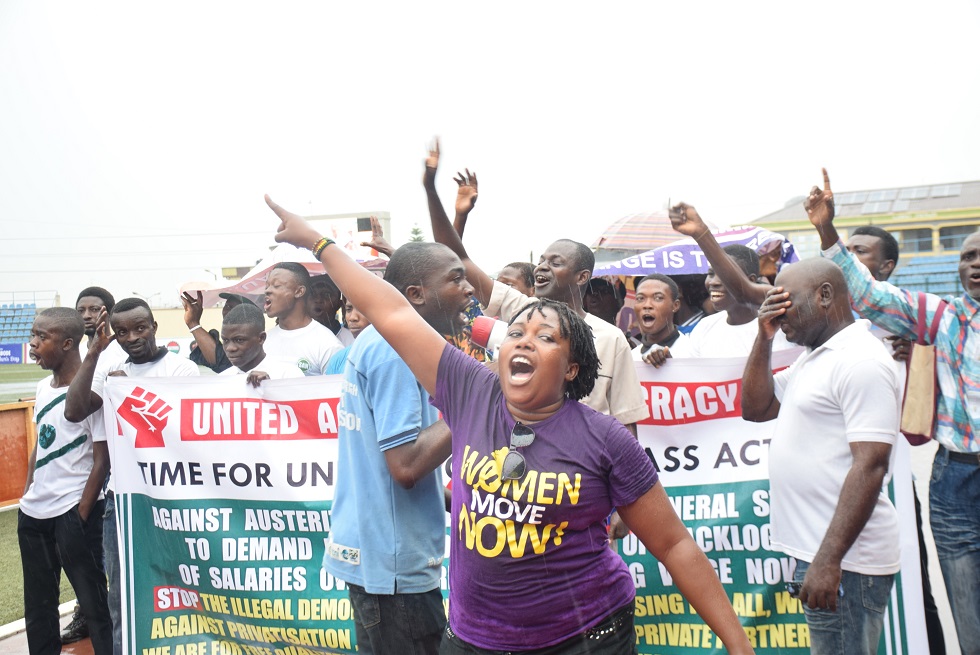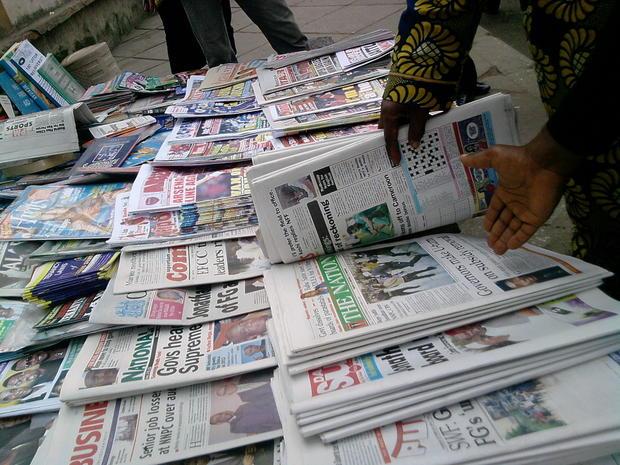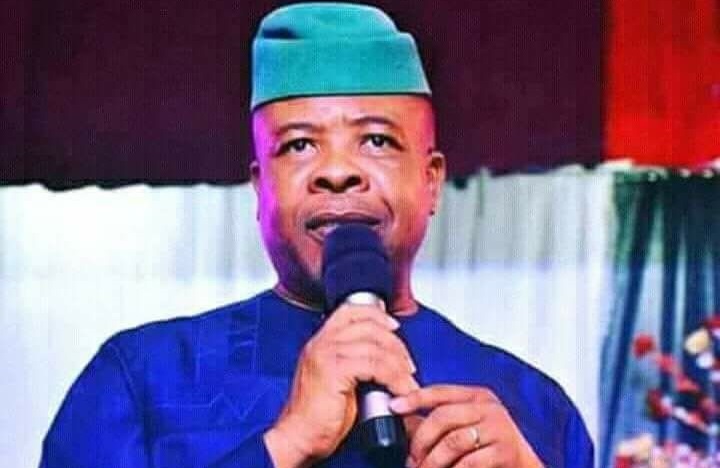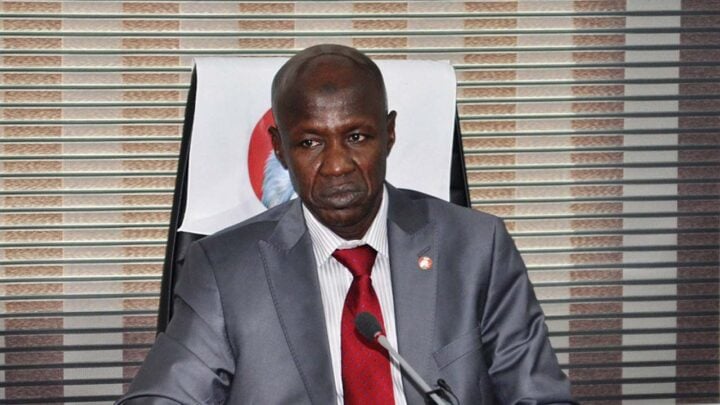Action for Democracy activists chant 'Aluta' songs
It is my honor and privilege to address this august body on this important annual retreat and strategy session. Represented in this room is the unimpeachable testimonial that young people are not only rising to take their place in Nigeria but that you are building a bridge to move Nigeria from its uncomfortable realities to a more glorious future.
As Frantz Fanon rightly pointed out, “Each generation must discover its mission, fulfill it or betray it, in relative opacity”. By this event, you are making bold effort to fulfil the mission of building a democratic and prosperous Nigeria. Very few generations are presented this kind of epochal front row seat in redesigning the trajectory of their country. In you seated here today, opportunity has met readiness. This call to duty speaks to the urgency of now and the fundamental need for us as a people and for you as the young generation to rewrite the story of Nigeria.
In 1960 Nigeria became independent. It was not just a ceremony that unshackled us from colonialism, but it was a symbol of hope and a solemn promise to a generation yet unborn that Nigeria will be a country that will support their dreams and provide them space to thrive. It was a promissory note that guaranteed liberty, freedom and security. Those promises began to unravel as soon as they were made. We went through unfortunate military dictatorship, atrocious civil war and debilitating economic difficulty. The fabrics of our unity and humanity was severely tested and stretched. Today we are a nation with deep scars that hide unspoken pain and pent up frustration. Many a times, the National Assembly which you honorably represent has been at the receiving end of that frustration and rightly so.
The Urgency of Now
Advertisement
The return to democracy in 1999 became a reaffirmation of the promises of independence. It provided hope and guaranteed freedom. It built a structure for checks and balances and imbued each organ of government with the responsibility of protecting the constitution and ensuring the wellbeing of the Nigerian people. Inherent in the promise of our constitution is the primacy of citizens who the constitution conferred with sovereignty. The solemn task of the National Assembly is to protect that sovereignty and ensure that laws and actions of the other arms of government serve only the interest of citizens and by extension the interest of the Nation.
Today, the reality is that our hard-won democracy is under threat majorly from its inability to deliver on development. Nearly 21 years after return to democracy we have more poor people in Nigeria than we had in 1999. We have more out of school children. We have high crime rate. We have insurgency, banditry and violence. Everyday blood of our brothers and sisters are being spilled in volumes that horrify even the strongest hearted. We are becoming numb to the violence, the suffering and poverty. We are moving in fits and starts. Every notable progress we make in our democratic journey is often overshadowed by the seemingly intractable contradictions of our nation.
I however do not doubt the capacity of a democracy to correct itself. The event of today and the huge potentials in this room speak eloquently to the fact that what is good about us as a nation is bigger than any challenge we are currently facing. But for this to happen, the democratic principles of liberty, rule of law and separation of powers must be respected and protected at all cost. We are seeing the erosion of these principles daily.
Advertisement
Protecting the Rule of Law and Separation of Power
In 1932 Franklin D. Roosevelt was elected President of the United States. At the time of his inauguration, one-quarter of the Labor force was unemployed. America was going through the Great Depression and the economy was in tatters. President Roosevelt had a mandate to implement ambitious policies to combat the Great Depression. His policy to deal with these huge problems was called the New Deal. President Roosevelt had a majority in both Senate and House of Representative enough to pass whatever legislation he wanted. However, some of his ambitious provisions around National Industry Recovery Act created constitutional challenges. The Supreme Court rightly struck down Title 1 of the Act. In their ruling they said- “Extraordinary conditions may call for extra ordinary remedies. But…extraordinary conditions do not create or enlarge constitutional powers”. The good intentions of the President were not in doubt. The judgment of the court hampered the noble agenda of addressing a pressing challenge. The president’s response was to find a way to whittle down the powers of the Supreme Court by enlarging its membership with the intent of appointing pliable jurists to join the court and do his bidding. Under the uncertain and dangerous economic times in the United States, you would think that the President’s good intention will win Congress over. However, Congress turned the President down. They did this because they understood that allowing this attempt to undermine the rule of law by the President would undermine the balance of power and the system of democracy that has protected both Congress and citizens. When the door is opened for government to undermine the principles of rule of law to achieve immediate gain, it is difficult to close it. It is a slippery slope that destroys its enablers, emboldens the beneficiary and blurs the line between state and individual interest.
Nigeria is going through one of its roughest patches since after the civil war. We are confronted with a terrible level of insecurity. Global Rights reports that in 2019, Newspapers in Nigeria reported 3,188 people killed in violent attacks. The expanding footprints of insurgency and the inadequate response from relevant authorities create an environment of fear and helplessness. In all of these, the tendency is to lower our guard and entrust our liberty to the whims of government rather than the rule of law. Government has directly demanded this of us. The policy that the rule of law is subject to national security is one of the greatest tragedies of our time. National security as defined by who? The politicization and privatization of instruments of coercion and security agency for individual interest as often seen in elections remind all of us that when we allow our democracy to run on the discretion of the gate keepers, we are entering a slippery slope that makes all of us victims and pawns in the game of the power wielders. In the face of stiffest challenge to our nation, the only constant decimal should be the rule of law which always should guide every action of government. Government cannot pick and choose court judgment to obey or the decisions of the Assembly to respect. We cannot confer such unfettered discretion to anyone in a democracy. The moment our government is no longer run on established laws but on the whims of the executive, we cease to lay any claim to democracy. Furthermore, no serious-minded investor or development partner would want to put resources in a country where the law is not respected. The sanctity of contract and absence of checks and balances make such investment an ill-advised risk.
Protecting the civic space
Advertisement
In the same vein, the current effort to limit the ability of citizens to express themselves or stifle the space for civil society to thrive will bring untold damage to the vibrancy of our already beleaguered democracy. These sets of bills (Social Media and Hate Speech bills) confer indefinite discretion on the government and security agencies to determine what constitutes an offence and to unilaterally without recourse to the judiciary take decision that infringes on the liberty and freedom of citizens. In a bid to combat digital mischief, we are creating a bigger monster in our security agencies who have demonstrated clear abuse of their regulated power and now we are conferring on them ‘unregulated’ powers. Where do we draw the confidence that they will exercise this in the best interest of the society? We have seen incidents of abuse of power and extortion by security agencies. We have seen the inability of our systems to hold them accountable. We have seen how it has imposed hardship on even members of the National Assembly. We can only imagine what happens to the average Nigeria. We cannot therefore under this reality reward their rascality with additional powers as envisaged in the Social Media and Hate Speech Commission Bills. You are perhaps our strongest line of defense against these anti-democratic bills.
Promoting democracy
The Supreme Court struck down the governorship election returns in Bayelsa state. Like the Imo state governorship decision that predated it, it is sure to put the spotlight on our elections and the urgent need to reform a system that has obviously lost the confidence of Nigerians. Our much-vilified constitution is also going through another round of legislative review. This is a unique opportunity for this Forum to effectively stamp its mark in the annals of our constitutional history. All of you here have been victims of the defective electoral and constitutional framework which have often exposed you to the exploitation of ‘king makers’ and voters alike. The current system of election management and constitutional framework is both unsustainable and contraindicative. You are presented an opportunity and the numbers to ensure that the vicious cycle of inchoate electoral reforms comes to an end this time. We need to codify the practices that hold solid promise for electoral integrity and courageously decouple the twisted thread of self-serving provisions in our laws that have kept credible contestants under a tight leash with limited room for independent action or valuable recourse to the will of citizens. We cannot continue to practice democracy by judicial fiat and subjugate the will of the people to the fractured framework of the electoral process.
The same can be said of our constitution. While it may not be practical to do a wholesale reset of the constitution, the piecemeal process which you have adopted should invariably bear witness to your collective determination and influence. This process must come out with your DNA prominently stamped on it in a way that gives you a place of pride in the judgment of history. Opportunities like this come rarely. The country is yearning for leadership and direction. As individuals you are equipped to attempt it but as a collective you are positioned to deliver it.
Advertisement
In 2015, the Open Society Initiative for West (OSIWA) and YIAGA conceived the program to support young legislators to provide a different kind of legislative service to their constituency and the country. The rationale behind this innovative engagement stemmed from our unflinching faith in the positive energy of young people and the need to provide a platform for alternative and positive narrative from young people. Our belief is that the exploits of a platform like this, will influence and change in a sustaining manner, the way business is conducted in the National Assembly. This forum has not disappointed. The Not too Young to Run campaign which was triggered by your platform again reaffirmed the potency of a congruence of interest between young legislators and young Nigerians. Our faith in your potentials have not wavered. More than ever, we need you and your country needs you. We believe that your decision on behalf of your generation will be one for the books in years to come. Thank you.
Remarks at the annual retreat of Young Nigerian Parliamentarians — (@udoilo)
Advertisement
Views expressed by contributors are strictly personal and not of TheCable.
